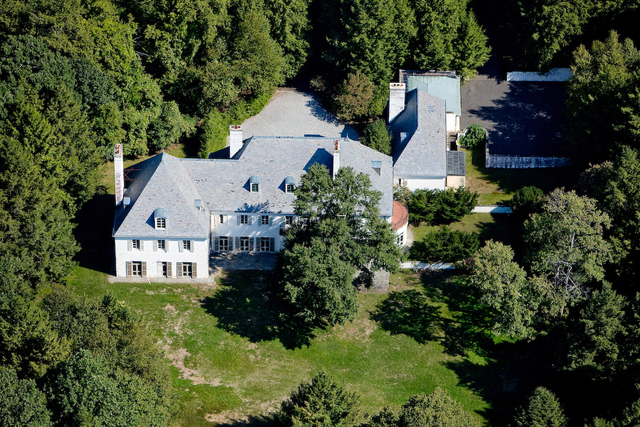Tentative deal would give $34.5 million to relatives of heiress
NEW YORK — A tentative deal has been reached in a New York court fight over the will of a Montana copper mining heiress whose father founded Las Vegas that would give more than $30 million of her $300 million estate to her distant relatives, a person familiar with the case said Saturday.
The breakthrough in the fight over Huguette Clark’s estate came after jury selection started in a trial pitting nearly two dozen of her half-siblings’ descendants against a goddaughter, a hospital where she spent her last 20 years, a nurse, doctors, a lawyer and others.
An April 2005 will cut out her distant relatives. Another will, six weeks earlier, left them most of her money.
The tentative settlement will give the relatives about $34.5 million after taxes under the deal, while her nurse would have to turn over $5 million and a doll collection valued at about $1.6 million, the person said.
Her lawyer would get nothing.
News of the tentative settlement was reported by The New York Times and NBCNews.com.
Lawyers involved with the case refused to comment or didn’t return calls.
Clark owned lavish properties from New York’s Fifth Avenue to the California coast but opted to spend her final two decades ensconced in a Manhattan hospital. The childless Clark died in 2011, at age 104.
Her father, U.S. Sen. William A. Clark, was one of the richest Americans of the late 19th and early 20th centuries. He was a senator from Montana, where he initially made his fortune from copper mines. His business empire later grew to include building a Western rail line and establishing a Nevada railroad town called Las Vegas. The surrounding Clark County is named for him.
Jury selection started Thursday in the trial over the validity of the April 2005 will.
“The persons and institution named herein as beneficiaries of my estate are the true objects of my bounty,” that will said, noting that she had had only “minimal contacts” with her relatives over the years.
Under terms of the deal, Clark’s chief nurse, Hadassah Peri, would get nothing and would have to return $5 million and the doll collection.
Clark’s lawyer, Wallace Bock, also would get nothing.
Clark’s mansion in California, Bellosguardo, would become a foundation, and the Corcoran Gallery of Art in Washington would get $10 million.
Clark was briefly married in her 20s. Her assistant has said she didn’t leave her apartment for decades before she was taken, emaciated and beset by advanced skin cancer, to Beth Israel Medical Center in 1991.
Doctors said she was medically ready to leave months later. But she chose to stay, at a cost of about $400,000 a year. During her years there, she rewarded the hospital, and her caregivers, with significant gifts on top of their fees.
Gifts to Peri included multiple Manhattan apartments and a $1.2 million Stradivarius violin, and the nurse stood to get $30 million in the disputed will. Clark’s primary doctor received cash Christmas presents totaling $500,000, among other gifts, plus a $100,000 bequest that he was preparing to relinquish before testifying at the trial, according to court documents.
The hospital got hundreds of thousands of dollars in cash, a $3.5 million painting by French pre-Impressionist Edouard Manet and a $1 million bequest.
Clark’s accountant and lawyer also received sizable cash gifts, and they stood to reap substantial fees as executors of her estate under the challenged will.
Clark’s relatives had said hospital executives, medical professionals and Clark’s lawyer and accountant took advantage of their access to the heiress to manipulate their way into her millions.
The beneficiaries have said Clark was simply a generous woman who wanted to help those who helped her.

















